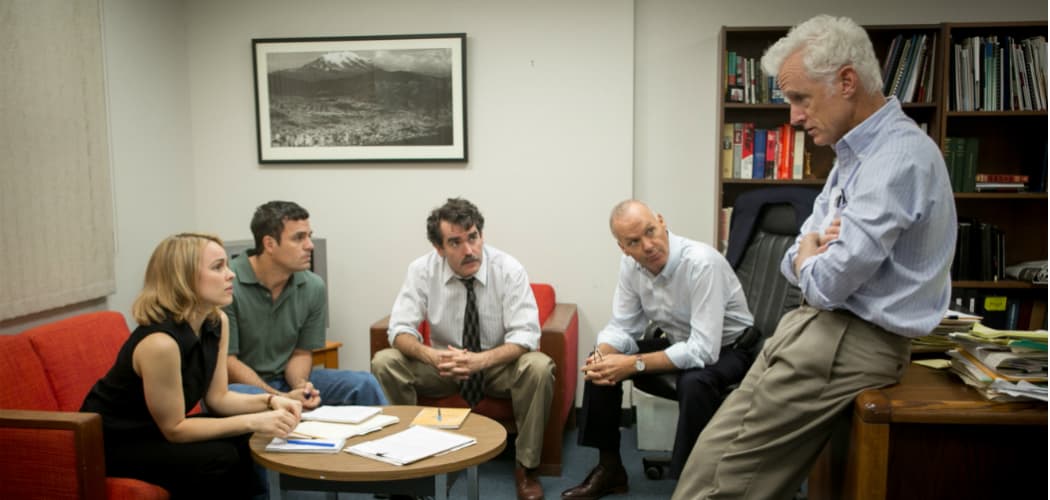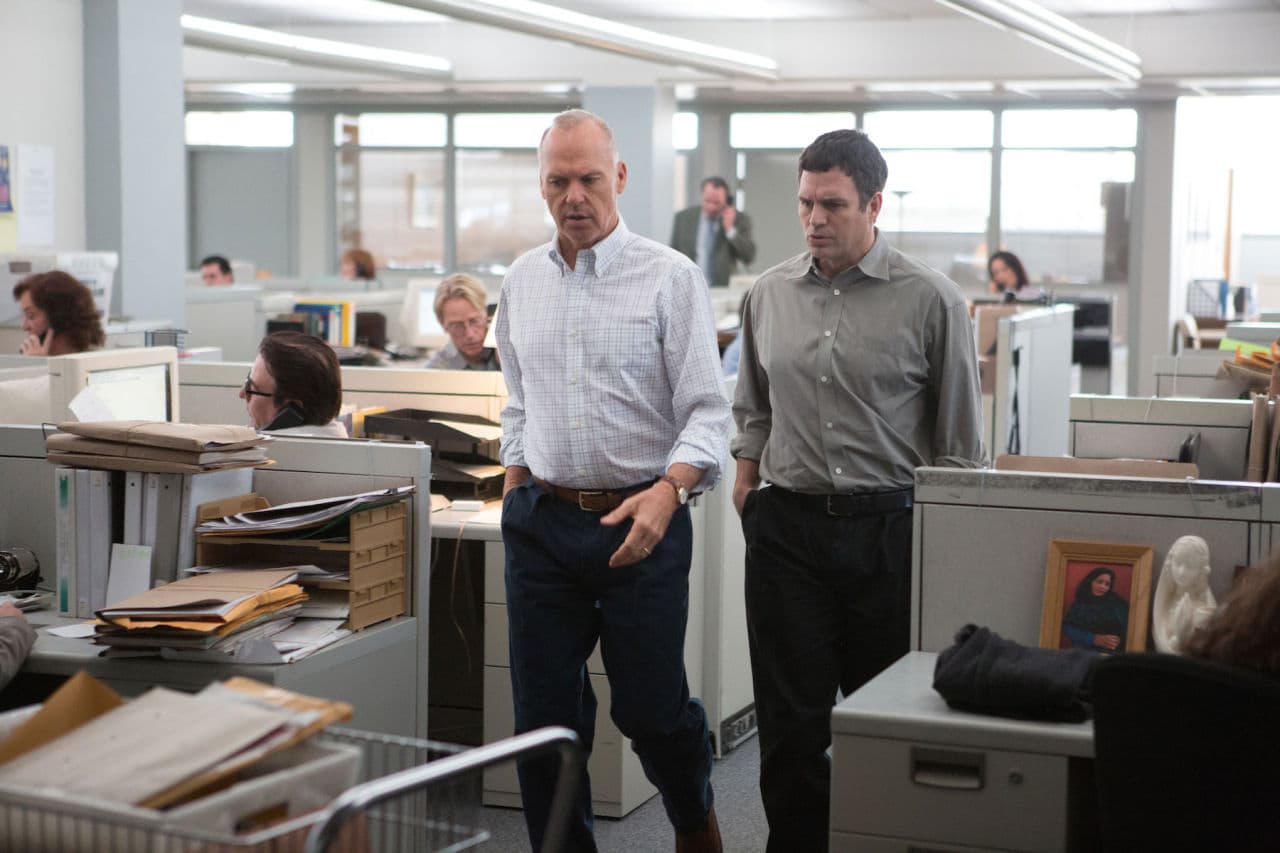Advertisement
‘Spotlight’ Brings This Film Critic Back To Her Catholic Roots — And Rebellion

While the movie-going public soaks up yet another Boston story about ruthless crooks from Southie (I’m looking at you, Bulger), I’ve been contemplating why the plucky team of investigative journalists in “Spotlight” should bump him off.
Off the Academy Award short list, for sure. But also off the exhausting hamster wheel of Boston iconography, especially popular over the last 10 years, that centers on gangsters, fighters and their circling cops who, if they’re not Whitey, are inevitably Irish, Catholic and, thus, white. On screen, it’s as if the underworld has won.
The superb new movie “Spotlight,” about The Boston Globe’s investigation into the Catholic Church’s child abuse cover-up, was the best film I saw at the Toronto International Film Festival by a marathon mile. It opens in Boston on Friday, Nov. 6, and I wholeheartedly recommend it.
As a professional critic there’s an incredible amount of film artistry to laud about “Spotlight,” an old-fashioned procedural of the best sort. For me, though, it was a reminder of what it is to be, or to have been, a Catholic.
I moved to Boston from Michigan in 2001, the year most of the movie takes place. That’s when the Globe’s four-person Spotlight team started uncovering the Boston Archdiocese’s rampant abuse of children and power. Though I’d grown up Catholic, even attended the University of Notre Dame and served a year in a kind of Catholic Peace Corps, I’d distanced myself enough from the church that the news felt more inevitable than personal.
Ever since, I’ve remained oddly dulled to the extent Catholicism is woven into the fabric of this city and my own identity, too. I shrugged it off as part of the Boston stereotype, having nothing to do with me, because, I figured, being an outsider trumps all else. So I’m white, Catholic, Irish (my name is Erin!) — a veritable trinity — and I’m an outsider? “Spotlight” showed me the absurdity of such logic.
On the film’s surface, it takes an “outsider” editor-in-chief Marty Baron (a wonderfully stoic Liev Schreiber who paradoxically plays the kind of Boston character I’m griping about in the TV series “Ray Donovan”) to push the abuse exposé to the front page. The fact that Baron is Jewish and from Florida raises a few eyebrows at first. But this film suggests, some would say trumpets, that the story is precisely about how systems are rigged to make insiders feel like outsiders.
Advertisement
Spotlight editor Walter “Robby” Robinson (played with gravity by Michael Keaton) is the closest thing to a main character in an ensemble film that prioritizes process over psyches. For too long he either does not or cannot clearly perceive his relationship to the powers that be, whether among fellow alums of Boston College High School across the street from the Globe or within the newsroom’s hierarchy. Before he can put the church story together, though, he needs to see the pieces of himself in it.

In that way, “Spotlight” asks that question on so many of our minds: What institution can we trust? It’s a movie less about individual journalists and more about journalism’s function in democracy; less about predatory priests and child victims, and more about the institution that allowed the abuse, and the corrective systems that, with time and resources, could oblige the former to change. It mourns what’s lost, and in fact made me nostalgic for a past I’ve never known, including working in a newsroom.
A secondary storyline also caught me off guard. In it, reporter Sacha Pfeiffer (a sharp Rachel McAdams) weighs how to break the news about the scandal to her devout grandmother. Her grandmother’s sorrow rang familiar. She grieves for the dissolution of the church and the rites and rituals that used to bind generations. The church abandoned her heart.
Of my 19 first cousins, nearly two-thirds no longer practice Catholicism. Our reasons are legion and inexplicable to our parents, who almost all still regularly attend Mass. We’re not unique, though. We’re the generation that has let go of its attachments to organized religion more than any other in American history.
Watching “Spotlight” I thought of the victims, of course, but I also thought about my aunts. One has lamented that her grandchildren will not find solace, as she has, by reciting prayers. For two others, the scandal was the straw that left them attending Mass only on holidays, if at all.
Still, as it was for the lapsed Catholic reporters of "Spotlight," something is missing without church. The Michael Rezendes character reveals how until this scandal he always felt he might go back someday. When you grow up Catholic, you understand that tug.
After much mulling, my non-Catholic husband and I recently decided to baptize our daughter. It was the first time I celebrated Mass with extended family since I can’t remember when.
Erin Trahan edits The Independent and is a regular contributor to the ARTery.
